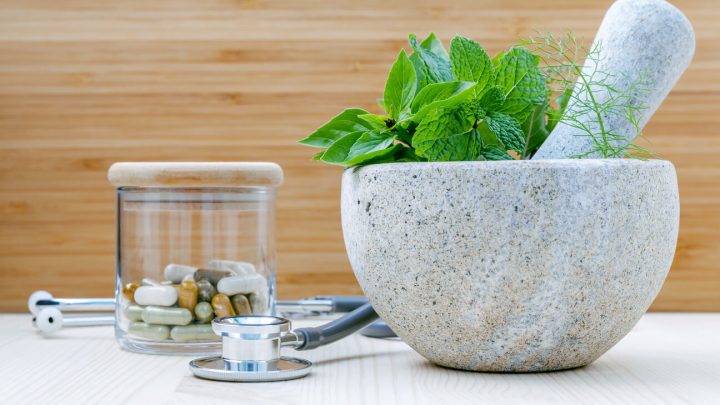Big Pharma Doesn’t Want You to Know About Alternatives
Editors carefully fact-check all Drugwatch.com content for accuracy and quality.
Drugwatch.com has a stringent fact-checking process. It starts with our strict sourcing guidelines.
We only gather information from credible sources. This includes peer-reviewed medical journals, reputable media outlets, government reports, court records and interviews with qualified experts.

Even as deaths mount from the nation’s opioid crisis, patients seeking alternative treatments for pain relief face limited options.
Pharmaceutical companies make billions from addictive painkillers. They don’t want you to know about safer alternatives offered by holistic health care practitioners like myself.
Alternatives threaten Big Pharma’s bottom line. Meanwhile, overdose deaths continue to rise in the U.S.
Opioids were involved in 42,249 overdose deaths in 2016, according to the Centers for Disease Control and Prevention. That’s a five-fold increase from 1999.
The CDC says an average of 115 people in the U.S. die daily from opioid overdose. Yet private insurers are more likely to pay for Big Pharma’s deadly product than for natural, effective alternatives to manage pain.
Health insurance doesn’t cover either my consultation services or the holistic strategies I recommend.
I’m glad they don’t.
If health insurance covered what I do, I wouldn’t be able to do it. The bureaucracy and paperwork wouldn’t allow me to focus on my clients and their needs.
I currently spend about two hours in an initial office visit with clients and then several more hours researching and writing a multipage, comprehensive report for each person.
Under the burden of insurance, I would only have a fraction of that time and would have to tell each client: “I have 20 minutes to talk about just one problem today.”
I would not, then, be able to achieve the high percentage of favorable outcomes my clients routinely experience for a range of aliments.
Cost of Alternative Therapies
How can I do it? Because when I’m stumped — which is often — I hit the books and don’t give up. Health care providers within the system could never incorporate this time-intensive approach into their practices.
I have several excellent physician colleagues who are, themselves, disillusioned with medicine as it is practiced today and, sadly for the public, searching for ways to “get out.”
However, it is frustrating — and in many cases a deal-breaker – for consumers who already pay high insurance premiums to have shell out even more to cover so-called “alternative therapies.”
In the world of insurance, these health care approaches fall under the umbrella of Complementary and Alternative Medicine, or CAM.
Many of these modalities are considered by insurance companies to be without scientific support, which is the basis on which coverage is flat-out denied or the ideas simply not entertained. Many people think CAM therapies are without scientific evidence because advertising (i.e., brainwashing) says so.
Big Pharma Controls Message
Big Pharma-backed mainstream media isn’t going to broadcast on the morning news, for example, the many studies found in the PubMed database on the endocannabinoid system and how important cannabinoids are to very many areas of health.
See for yourself: just Google “pubmed endocannabinoid system.” You’ll be intrigued. Why you haven’t heard of that before? You might ask: “If it were so, wouldn’t we all just know it? Wouldn’t my doctor know it?”
I’ll bet what you didn’t know is that we are all born making cannabinoids. I’ll bet you also didn’t know that human breast milk is very high in cannabinoids. When we use cannabis medicine, we are simply replacing in plant form those substances we are failing to make for ourselves. In our bodies, we make cannabinoids primarily from omega 3 fatty acids.
By comparison, let’s consider vitamin D deficiency. This is something mainstream medicine is now – after decades of science behind it – finally measuring and treating. Perhaps in another 20 years or so, mainstream medicine will catch up with the science that already exists and will measure and treat endocannabinoid deficiency.
Until then, if you want to make this therapy part of your health-care regimen, you will pay for it out of pocket.
And you’ll be doing the same for other alternative treatments, including:
- Acupuncture
- Aromatherapy
- Ayurvedic medicine
- Chiropractic care
- Homeopathy
- Nutritional counseling
- Traditional Chinese medicine
- Herbalism
- Tai chi
- Yoga
- Body movement
- Electromagnetic therapy
- Reiki
Health Savings Accounts Help
When it comes to pocketbook health, check into tax-deductible, health-savings accounts, such as HSA (Health Savings Account) or FSA (Flexible Spending Arrangement). It’s your money. You can set it aside for CAM.
Expenditures must be for qualified expenses. My clients have received approval for these expenditures based on my letters of explanation. Some, however, have been rejected.
Finally, in my practice, I do all I can to soften the sting. In addition to other cost-saving measures, I offer payment plans for those who need them. I do and have done lots of pro bono work. My passion is applying what I know to those who need and want it. I just need to be able to keep paying the bills to be able to do that, and, thankfully, I can.
The mainstream medicine system — in collusion with the massive health care insurance industry — is tough and strong and will not — despite science and logic — be changing any time soon.
There are exciting options out there, however, when it comes to gaining and maintaining vibrant health, if you only know what they are and where to find them.